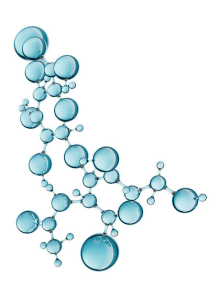PCA (L-PCA, L-Pyroglutamic Acid)
- Product Code: 127445
commonly used as a moisturizing agent in skincare formulations. Specifically, its sodium salt (Sodium PCA) is frequently cited for topical benefits
- -
- -
- -
- -
- -
- -
- -
- -
- -
- -
- -
- -
- -
- -
- -
- -
- -
- -
| Test Name | Specification |
|---|---|
| Appearance | White to off-white powder or crystals |
| Infrared Spectrum | Conforms to Structure |
| Melting Point | 160°C - 164°C |
| Water by Karl Fischer | 0% - 0.05% |
| Purity (GC) | 99% - 100% |
| Specific Rotation [A]20/D | -9° to -12° |
L-Pyroglutamic Acid (PCA) or Pyrrolidone Carboxylic Acid (PCA) is commonly used as a moisturizing agent in skincare formulations. Specifically, its sodium salt (Sodium PCA) is frequently cited for topical benefits. Here's a summary of well-documented topical benefits with supporting research citations:
Topical Benefits of PCA:
- Hydration and Moisturization
- PCA acts as a natural moisturizing factor (NMF), significantly enhancing skin hydration by attracting and retaining moisture from the environment.
- Sodium PCA has high water-binding capabilities, helping restore and maintain the skin's hydration barrier.
Scientific Evidence:
- Humectant Activity:
- Sodium PCA increases the water-holding capacity of the stratum corneum, significantly improving skin hydration (Warner et al., 2003).
- Barrier Function Improvement:
- PCA derivatives have been demonstrated to enhance the structural integrity of the skin barrier, which is vital for preventing transepidermal water loss (Rawlings & Harding, 2004).
- Skin Smoothing and Softening:
- Topical application of formulations containing PCA leads to improved skin texture and smoothness, confirmed by clinical studies (Lodén, 2003).
- Protection Against Irritation:
- PCA may help reduce irritation and inflammation associated with topical treatments by improving the skin’s hydration level and barrier integrity (Fluhr et al., 2001).
- Enhanced Skin Elasticity:
- Sodium PCA has shown efficacy in maintaining or improving skin elasticity, which can support anti-aging effects (Wickett & Visscher, 2006).
Common Applications:
- Moisturizing creams, serums, and lotions.
- Anti-aging formulations.
- Barrier creams to alleviate dryness and prevent irritation.
- Sensitive skin preparations.
How to use: For all types of cosmetics, available in gel, serum, lotion or cream form.
Mixing method: Mix directly into the formula in water (water phase).
Usage rate: 0.1-3%
Product characteristics: Solid powder
Solubility: Can be dissolved in water immediately.
Storage: For long-term storage, keep in the refrigerator, avoid sunlight and heat. Shelf life is at least 2 years.
INCI Name : PCA
Be the first to review this product :-)
Recommend Lab-Service
| Lab Service | Price |
|---|
commonly used as a moisturizing agent in skincare formulations. Specifically, its sodium salt (Sodium PCA) is frequently cited for topical benefits
L-Pyroglutamic Acid (PCA) or Pyrrolidone Carboxylic Acid (PCA) is commonly used as a moisturizing agent in skincare formulations. Specifically, its sodium salt (Sodium PCA) is frequently cited for topical benefits. Here's a summary of well-documented topical benefits with supporting research citations:
Topical Benefits of PCA:
- Hydration and Moisturization
- PCA acts as a natural moisturizing factor (NMF), significantly enhancing skin hydration by attracting and retaining moisture from the environment.
- Sodium PCA has high water-binding capabilities, helping restore and maintain the skin's hydration barrier.
Scientific Evidence:
- Humectant Activity:
- Sodium PCA increases the water-holding capacity of the stratum corneum, significantly improving skin hydration (Warner et al., 2003).
- Barrier Function Improvement:
- PCA derivatives have been demonstrated to enhance the structural integrity of the skin barrier, which is vital for preventing transepidermal water loss (Rawlings & Harding, 2004).
- Skin Smoothing and Softening:
- Topical application of formulations containing PCA leads to improved skin texture and smoothness, confirmed by clinical studies (Lodén, 2003).
- Protection Against Irritation:
- PCA may help reduce irritation and inflammation associated with topical treatments by improving the skin’s hydration level and barrier integrity (Fluhr et al., 2001).
- Enhanced Skin Elasticity:
- Sodium PCA has shown efficacy in maintaining or improving skin elasticity, which can support anti-aging effects (Wickett & Visscher, 2006).
Common Applications:
- Moisturizing creams, serums, and lotions.
- Anti-aging formulations.
- Barrier creams to alleviate dryness and prevent irritation.
- Sensitive skin preparations.
How to use: For all types of cosmetics, available in gel, serum, lotion or cream form.
Mixing method: Mix directly into the formula in water (water phase).
Usage rate: 0.1-3%
Product characteristics: Solid powder
Solubility: Can be dissolved in water immediately.
Storage: For long-term storage, keep in the refrigerator, avoid sunlight and heat. Shelf life is at least 2 years.
INCI Name : PCA
| Mechanism | - |
| Appearance | - |
| Longevity | - |
| Strength | - |
| Storage | - |
| Shelf Life | - |
| Allergen(s) | - |
| Dosage (Range) | - |
| Recommended Dosage | - |
| Dosage (Per Day) | - |
| Recommended Dosage (Per Day) | - |
| Mix Method | - |
| Heat Resistance | - |
| Stable in pH range | - |
| Solubility | - |
| Product Types | - |
| INCI | - |
Cart
No products



